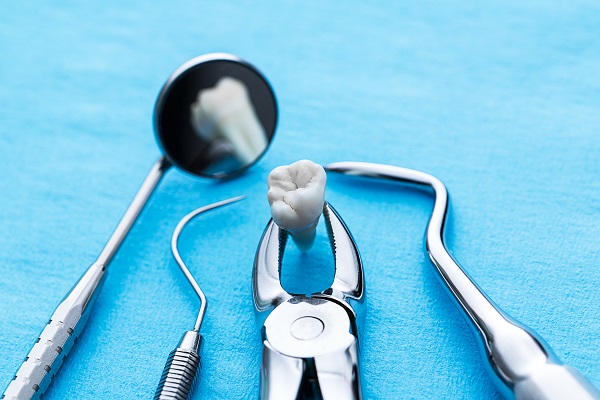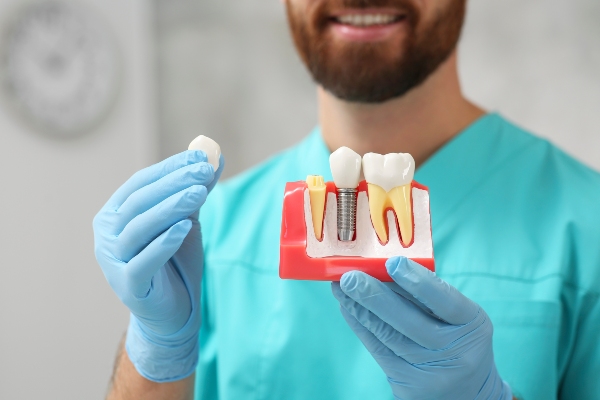How Painful Can a Tooth Extraction Be?
Preparing for an upcoming ? The main concern for patients is the potential pain that comes with the procedure. Thankfully, modern-day dentistry has allowed for new technology, which helps to keep pain at a minimum. Nonetheless, it is necessary to get familiar with what is involved in order to be appropriately prepared. Keep reading to learn more!
The pain associated with a tooth extraction
Below is a quick overview of tooth extractions and how painful the process can be. It can be helpful to review this information when preparing for the procedure.
Pain during the procedure
The thought of a tooth extraction often induces fear in patients due to the possibility that pain may be felt during the procedure. However, dentists offer pain management resources, which help reduce and even eliminate pain altogether. Numbing agents, pain medication and sedation can all be administered prior to the start of the procedure.
Numbing agents are administered in the form of a shot, whereas pain medication is usually delivered orally. Most patients will undergo nitrous oxide or laughing gas to reduce anxiety and to calm nerves. However, in some rare situations, oral sedation will be administered, which results in unconsciousness, thus putting the patient to sleep so that they feel nothing.
Dentists highly recommend each of these pain management resources in order to reduce or eliminate discomfort during a tooth extraction. However, some patients are against them due to health concerns or preferences. In the event that these resources are not utilized, patients should expect to experience a fair amount of pain since the nerves are being disconnected from the tooth itself.
Pain after the procedure
As far as pain after tooth extraction, most people experience slight discomfort for a day or so, which is completely normal. The wound will be sore and sensitive, and the surrounding areas may also feel the same way. Typically, the discomfort does not extend past two days. Outlined below are a few ways that pain can be managed afterward.
- Take an over-the-counter pain reliever, in moderation and with food
- Avoid hard or tough foods that could cause further irritation
- Use ice packs or cold compresses to reduce discomfort and inflammation
In the event that pain extends past two to three days, it is recommended to visit the dentist for follow-up care. In some rare situations, the wound from a tooth extraction can become infected, which can present itself through pain or discomfort. If an infection is present, the dentist will need to perform a cleaning and the necessary treatment to address the infection.
Find out more from a general dentist
When preparing for a tooth extraction, it can be helpful to consult with a dentist. The dentist can answer questions, address concerns and go over pain management options that may be specific to each patient. Reach out today to learn more or to get scheduled for an appointment. We are here to help!
Request an appointment here: https://www.chanfamilydentistry.com or call Chan Family Dentistry at (510) 214-8450 for an appointment in our San Lorenzo office.
Check out what others are saying about our dental services on Yelp: .
Recent Posts
Dealing with problematic teeth is vital to your current and future oral health, and sometimes this includes tooth extraction. Various dental issues can necessitate an extraction, but it is also important to note that not replacing the extracted tooth or teeth can harm your dental health. However, there are several methods and options to consider…
If you have a missing tooth, it may be difficult to eat or speak. You may not even want to be around other people. Fortunately, you do not have to struggle with this condition for long. Your dentist can talk to you about a treatment to fill in the gap and replace the tooth so…
Preventative dental care is an effective way to help reduce the risk of oral health conditions. Preventive dental care includes regular checkups, brushing teeth twice a day, and flossing at least once daily. These tasks can be time-consuming and seem trivial, but they are crucial for maintaining good oral hygiene. The American Dental Association recommends…
Getting approval for dental implants is the first step in the process. Anyone interested in dental implants must undergo a consultation, examination, and assessment to be a viable candidate for the surgical process. Since an implant is surgically inserted into the jawbone, the patient needs to have sufficient bone and be free of gum disease.…


